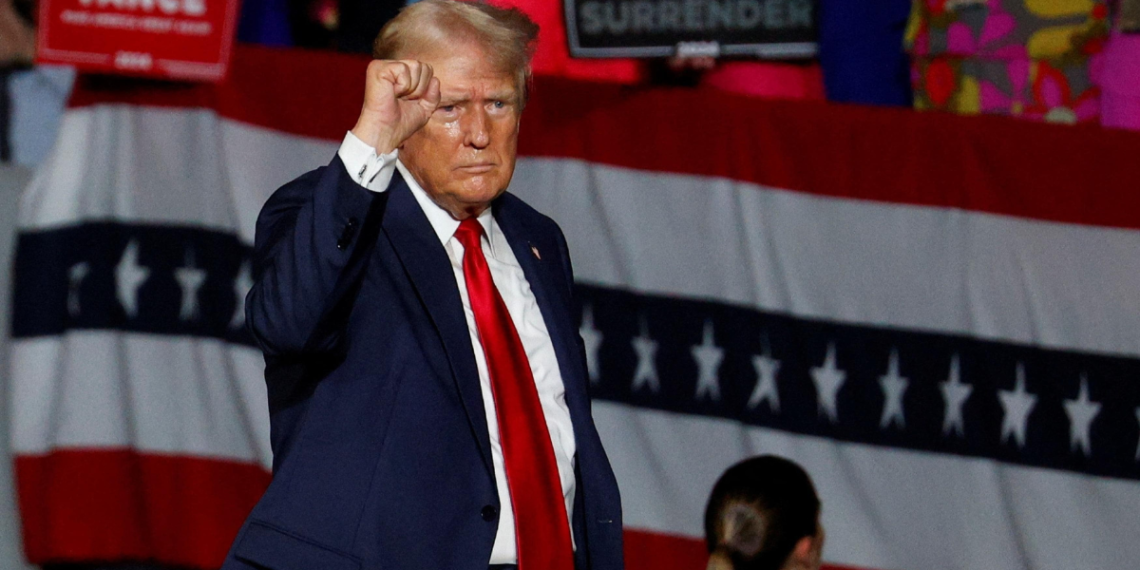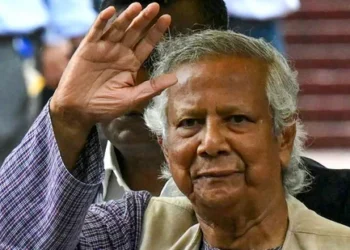The upcoming COP29 climate summit in Baku is set to address urgent climate funding and emissions commitments with over 100 global leaders. Trump’s potential rollbacks on clean energy, from withdrawing from the Paris Climate Agreement to expanding drilling, have raised concerns about the summit’s outcome. Former UN climate chief Christiana Figueres warns of a “major blow to global climate action,” yet hopes for significant progress in reducing fossil fuel dependence persist.
By Navin Upadhyay
In November 2019, a U.S. court ordered Donald Trump to pay the Scottish government nearly $290,000 in legal fees, delivering a decisive blow to his protracted battle against wind energy. This legal conflict dates back to Trump’s fierce opposition to a proposed wind farm off the coast of his Aberdeen golf course, Trump International Golf Links. He denounced the project as a “monstrous” intrusion, claiming it would destroy the scenic views of “perhaps the greatest golf course anywhere in the world.”
Trump’s attempts to block the project ultimately failed, but his criticism of wind power continued unabated, with claims that turbines kill birds, cause cancer, and interfere with television signals on still days. The court’s decision to require Trump to cover Scotland’s legal costs symbolized a closure of his fight against the Aberdeen wind farm—yet his contentious views on renewable energy remain as impassioned as ever.
Now, with Trump back in the Presidential office, proponents of clean energy have reason to worry. The reasons are obvious: The U.S. oil and gas production has reached record levels with 20% more licenses issued under the Biden administration than during Trump’s first term,
Trump’s transition team is reportedly planning to roll back climate commitments. According to The New York Times, his team is preparing executive orders and proclamations to withdraw from the Paris Climate Agreement and expand oil drilling and mining operations.
Trump’s approach to energy policy is expected to further diverge from the current administration’s path. Reports suggest he aims to end the current moratorium on new liquefied natural gas (LNG) export permits to large markets in Asia and Europe, as well as revoke a waiver that allows California and other states to maintain stricter pollution standards.
President Joe Biden’s administration paused approvals of new LNG exports in January to conduct a study on the environmental and economic impact of these exports. The U.S. Department of Energy plans to release a draft of this updated analysis for a 60-day public comment period before the end of the year.
Trump’s potential policies cast a long shadow over the upcoming COP29 UN climate talks in Baku, Azerbaijan. This summit, set to host more than 100 heads of state and government, will focus on advancing the 2015 Paris Climate Agreement. Since 1992, when the UN Framework Convention on Climate Change was first signed, annual COP summits have served as milestones for global climate commitments, and COP29 will be no different. Although Trump is not expected to attend, his promised shift away from Biden’s clean energy policies will be a central topic of concern for the tens of thousands of delegates gathering at Baku.
Christiana Figueres, former UN climate chief and co-founder of the Global Optimism think tank, has gone on record warning of the impact of Trump’s potential return to the office, stating, “The result from this election will be seen as a major blow to global climate action but it cannot and will not halt the changes under way to decarbonize the economy and meet the goals of the Paris Agreement.”
Also Read: Chandrachud’s Legacy: Progressive judgments on privacy, equality, and democracy
Countries meeting at COP29 are expected to reaffirm their commitments to limit global temperature rise to 1.5°C, a target that requires net-zero emissions within the next two decades. Scientists argue that, although daunting, there remains a chance to prevent the worst impacts of climate breakdown—if the world acts swiftly and decisively.
Despite the daunting challenges facing the Baku summit and the growing global resistance to net-zero targets from far-right groups, COP29 presents a crucial opportunity to address a major barrier to climate action: funding.
Transitioning to clean energy is both economically feasible and environmentally imperative. However, the world’s entrenched reliance on fossil fuels continues to pose a significant obstacle. The shift towards a low-carbon, sustainable economy will require substantial financial investment.
Many view COP29 as a pivotal moment to mobilize the necessary resources and momentum to steer the world towards a more sustainable, healthier, and prosperous future.
Here is why is Donald Trump opposed to renewable energy.
- Trump has long prioritized the traditional fossil fuel industry, particularly coal, oil, and natural gas, as central to the U.S. economy. He has argued that these industries create stable, high-paying jobs, especially in states dependent on fossil fuel production. This stance aligns with his commitment to promoting energy independence through domestic oil and gas production.
- Criticisms of Wind and Solar: Trump has voiced several criticisms specifically targeting wind and solar power. For instance, he’s argued that wind turbines harm bird populations, detract from scenic views, and produce unreliable energy. Trump has also claimed that wind farms negatively affect property values and questioned their efficiency, often pointing to intermittent energy generation issues.
- Concerns About Costs: Trump has often framed renewable energy as costly for American taxpayers, emphasizing the expenses associated with government subsidies for clean energy projects. He has argued that these subsidies lead to higher energy prices for consumers, although many studies suggest that renewable energy costs have been decreasing and are often competitive with or cheaper than fossil fuels.
- Political Ideology and Messaging: Trump’s opposition to renewables also aligns with a broader ideological stance against climate policies that he views as part of an overly regulatory, liberal agenda. He has framed climate initiatives as a political push by Democrats and global organizations, positioning his policies as a way to protect American jobs and the economy.
- Personal Interests: Trump’s own businesses have occasionally clashed with renewable projects. For example, he opposed a wind farm project in Scotland, claiming it would ruin the view from one of his golf courses there.














